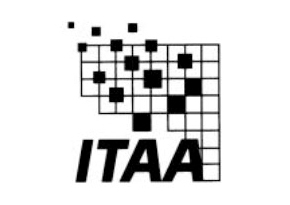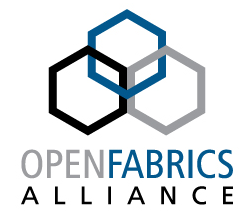Related Research Articles
Act or ACT may refer to:

The Information Technology Association of America (ITAA), formerly the Association of Data Processing Service Organizations (ADAPSO), was a leading industry trade group for information technology companies. The association's membership contained most of the world's major Information and communications technology (ICT) firms, accounting for over 90% of ICT goods and services sold in North America. By 2009, the organization had merged with others to form TechAmerica
ISO/IEC/IEEE 12207Systems and software engineering – Software life cycle processes is an international standard for software lifecycle processes. First introduced in 1995, it aims to be a primary standard that defines all the processes required for developing and maintaining software systems, including the outcomes and/or activities of each process.
The software industry includes businesses for development, maintenance and publication of software that are using different business models, mainly either "license/maintenance based" (on-premises) or "Cloud based". The industry also includes software services, such as training, documentation, consulting and data recovery. The software and computer services industry spends more than 11% of its net sales for Research & Development which is in comparison with other industries the second highest share after pharmaceuticals & biotechnology.

The Software and Information Industry Association (SIIA) is a trade association dedicated to the entertainment, consumer and business software industries. Established in 1984 as the Software Publishers Association (SPA), the SIIA took its new name when it merged with the related Information Industry Association on January 1, 1999. The joint enterprise was headed by Software Publishers Association founder Ken Wasch and operated out of the SPA's existing offices.
Platinum Technology Inc. was founded by Andrew Filipowski in 1987 to market and support deployment of database management software products and the applications enabled by database management technology and to render related services. Over its 12-year history, it was known for its acquisition of other companies, having bought more than 50 companies between 1994 and 1999 and growing to become the eighth largest global software company with revenue of a billion dollars per year. Acquisitions included Altai, Inc. (1995), AutoSystems Corporation, Brownstone Solutions, ICON Computing, Intervista Software, Software Interfaces, Locus Computing Corporation, LBMS (1998), Logic Works (1998), Protosoft, RELTECH Group, Memco Software, Softool, SQL TOOLS, Inc., Trinzic, Viatech and VREAM (1996). The company was a member of the UML Partners consortium.
Communications servers are open, standards-based computing systems that operate as a carrier-grade common platform for a wide range of communications applications and allow equipment providers to add value at many levels of the system architecture.

The Ministry of Industry and Information Technology is the sixth-ranked executive department of the State Council of the People's Republic of China that is responsible for regulation and development of the postal service, Internet, wireless, broadcasting, communications, production of electronic and information goods, software industry and the promotion of the national knowledge economy.

Dalian Software Park, also called DLSP, is an industrial zone, created in 1998 in the western suburbs of Dalian City, Liaoning Province, China, where many of the world's large and medium-sized IT-related companies have set up shop to do software development and information services. It is part of Dalian Hi-tech Zone in the broader sense. While American and European companies typically have gone to Bangalore and other cities in India because of the English language capability, Japanese companies have gone to Dalian and other cities in China due to the Japanese language capability.

The Open Handset Alliance (OHA) is a consortium of 84 firms to develop open standards for mobile devices. Member firms include HTC, Sony, Dell, Intel, Motorola, Qualcomm, Texas Instruments, Google, Samsung Electronics, LG Electronics, T-Mobile, Sprint Corporation, Nvidia, and Wind River Systems.

The OpenFabrics Alliance is a non-profit organization that promotes remote direct memory access (RDMA) switched fabric technologies for server and storage connectivity. These high-speed data-transport technologies are used in high-performance computing facilities, in research and various industries.
The China Software Industry Association (CSIA) is the major representative and one of the most active associations in the China software industry. Its goal is to promote the development of software industry in China and provide a hub with overseas markets.

The BC Tech Association, formally the British Columbia Technology Industry Association (BCTIA), is a not-for-profit member-funded trade association in British Columbia, Canada, which promotes the technology industry in the province. The technology industry in BC has been growing steadily since the late 1990s and constituted 5.9% of British Columbia's economic output in 2007.

The Digital Millennium Copyright Act (DMCA) is a 1998 United States copyright law that implements two 1996 treaties of the World Intellectual Property Organization (WIPO). It criminalizes production and dissemination of technology, devices, or services intended to circumvent measures that control access to copyrighted works. It also criminalizes the act of circumventing an access control, whether or not there is actual infringement of copyright itself. In addition, the DMCA heightens the penalties for copyright infringement on the Internet. Passed on October 12, 1998, by a unanimous vote in the United States Senate and signed into law by President Bill Clinton on October 28, 1998, the DMCA amended Title 17 of the United States Code to extend the reach of copyright, while limiting the liability of the providers of online services for copyright infringement by their users.

Electronic Data Systems (EDS) was an American multinational information technology equipment and services company headquartered in Plano, Texas, which was founded in 1962 by Ross Perot. The company was a subsidiary of General Motors from 1984 until it was spun off in 1996. EDS was acquired by Hewlett-Packard in 2008.
The Assistive Technology Industry Association (ATIA) is a not-for-profit membership organization of manufacturers, sellers and providers of technology-based assistive devices and/or services, for people with disabilities. ATIA represents the interests of its members to business, government, education, and the many agencies that serve people with disabilities. One goal of the ATIA is to "speak with the common voice" for Its mission is to serve as the collective voice of the Assistive Technology (AT) industry so that the best products and services are delivered to people with disabilities.
The Copyright Alliance is a nonprofit, nonpartisan 501(c)(4) organization representing artistic creators across a broad range of copyright disciplines.
References
- ↑ "The Washington Software Alliance unveils new name, the Washington Technology Industry Association, on February 7, 2008". www.historylink.org. Retrieved 2021-01-12.